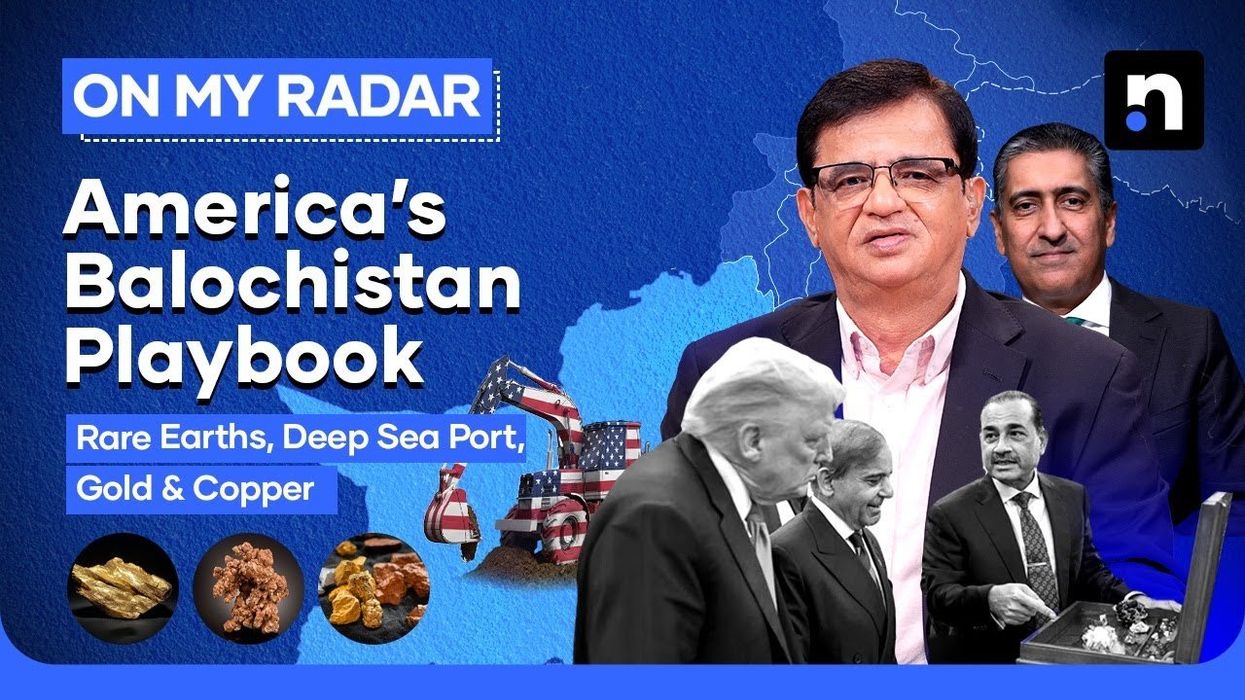From aid to trade: US stakes grow in Pakistan’s resource-rich Balochistan
Kamran Khan says the US footprint in Balochistan supports Pakistan’s security and economic stability
News Desk
The News Desk provides timely and factual coverage of national and international events, with an emphasis on accuracy and clarity.
Pakistan may be entering a new phase of economic growth as major U.S. companies show interest in its mineral sector, particularly in Balochistan’s Reqo Dik gold and copper project, according to Kamran Khan in his program “On My Radar.”
He described this transformation as an “economic revolution” emerging from Balochistan — a province now drawing attention from both China, under the China-Pakistan Economic Corridor (CPEC), and the United States, through expanding partnerships in high-value mining projects.
Khan said this marks a crucial shift in Pakistan’s foreign policy — moving away from dependence on U.S. aid and toward trade and investment. Reqo Dik’s operator, Barrick Gold, though Canadian-owned, is listed on the New York Stock Exchange and attracts significant American institutional backing.
According to Khan, Barrick Gold informed the Pakistani government that it would not transport unprocessed gold and copper ore abroad via Gwadar Port for smelting and refining. Using Karachi’s ports, he added, would be prohibitively expensive.
Citing a report from the Financial Times, Khan noted that talks have begun between Pakistan and U.S. counterparts on developing a new port at Pasni, potentially to facilitate exports from Reqo Dik. Islamabad has not fully denied the report, fueling speculation that Pasni could become a hub for the region’s mineral trade.
“The American footprint in Balochistan appears to be part of a wider plan to support Pakistan’s economic and security stability,” Khan said.
He added that much of the project financing comes from U.S.-linked institutions. The International Finance Corporation has committed $700 million in loans, while the Asian Development Bank is contributing $400 million. The remaining $3.5 billion financing gap will be filled by the U.S. Exim Bank, Japan Bank for International Cooperation, and Export Development Canada.
American engineering giant Fluor Corporation is also a key partner in Reqo Dik, handling engineering, procurement, construction, and management responsibilities, including design and on-site operations.
In another development, U.S. Strategic Metals signed a memorandum of understanding in September with Pakistan’s Frontier Works Organization (FWO), a subsidiary of the Pakistan Army. The company’s commercial director, Mike Hollomon, told the Financial Times that they plan to establish a refinery in Pakistan and have already held meetings with officials from Karachi and Gwadar ports. Hollomon suggested that Pasni’s deep-sea characteristics make it an ideal location for such a facility.
Khan emphasized that Pakistan’s mineral wealth extends far beyond Balochistan. From Balochistan to Khyber Pakhtunkhwa, the country holds vast deposits of gold, copper, oil, gas, coal, and rare earth elements (REEs).
He noted that 12 of the 17 globally critical REEs — used in missile guidance systems, fighter jets, radars, electric vehicles, wind turbines, and semiconductors — are found in Pakistan.
Khan said that Pakistan recently exported less than two tons of REEs worth $500 million to the United States, a figure that hints at trillions of dollars in untapped mineral wealth. “These resources could change Pakistan’s economic destiny,” he said.








Comments
See what people are discussing